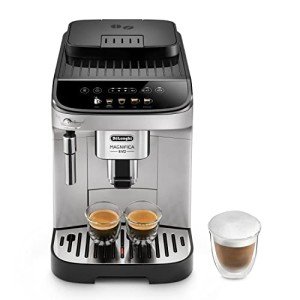Bean To Cup Espresso Coffee Machine: The Ultimate Guide
In recent years, the coffee culture has actually experienced a substantial transformation, with the rise of home developing devices offering convenience and quality comparable to café offerings. Among these gadgets, the Bean to Cup Espresso Coffee Machine stands apart as a preferred among coffee connoisseurs and casual drinkers alike. This extensive guide explores what these machines are, how they work, the advantages they offer, and factors to think about when choosing the right one.
What is a Bean to Cup Espresso Coffee Machine?
A Bean to Cup Espresso Coffee Machine is an advanced coffee developing device that grinds coffee beans fresh for each cup, automating the whole espresso-making process. These machines usually include integrated grinders, integrated milk frothers, and precise brewing technology, allowing users to create high-quality espressos, lattes, coffees, and more, all from the comfort of their homes. The benefit, combined with the abundant and robust flavors produced, has made these machines significantly popular.
How Does It Work?
The standard operation of a Bean to Cup Espresso Coffee Machine can be broken down into numerous essential steps:
Bean Grinding
- The machine grinds whole coffee beans right away before brewing, ensuring maximum freshness and taste retention.
Brewing
- Ground coffee is loaded into a filter, and hot water is required through the coffee premises at high pressure, which is vital for developing espresso.
Frothing (Optional)
- Many models consist of a steam wand or milk frother for preparing frothed milk for lattes and coffees.
Serving
- The last includes giving the brewed coffee into a cup, often with programmable functions for customization.
Benefits of Bean to Cup Espresso Machines
Investing in a Bean to Cup Espresso Coffee Machine provides many benefits, adding to its growing popularity.
| Benefit | Description |
|---|---|
| Convenience | One-touch operation decreases the time and effort needed to prepare coffee. |
| Quality | Freshly ground beans lead to a richer, more flavorful beverage compared to pre-ground options. |
| Personalization | Users can adjust settings to match individual choices, consisting of grind size, coffee strength, and milk froth levels. |
| Cost-efficient | Although the initial financial investment might be high, cost savings on coffee purchases from cafés can be significant in time. |
| Versatility | The ability to brew various coffee types, from espresso to cappuccino, widens the machine's appeal. |
Secret Features to Look For
When picking a Bean to Cup Espresso Coffee Machine, different features can influence the purchase decision. Below are important aspects to consider:
Grinder Type
- Burr grinders are preferred over blade grinders for their consistent grind size.
Brewing Pressure
- Look for machines that provide a minimum of 15 bars of pressure for ideal espresso extraction.
Milk Frother
- Pick in between manual steam wands or automatic milk frothers based on preferences for milk texture and foam.
Interface
- An user-friendly control panel with programmable settings improves the general experience.
Size and Design
- Consider the counter top area offered and pick a style that complements your kitchen area visual appeals.
Maintenance Options
- Some machines provide automatic cleansing cycles, which can conserve effort and time in upkeep.
Popular Bean to Cup Espresso Machines
Selecting a machine that fits one's needs can be tough. Below is Compact Bean To Cup Coffee Machine of popular models, known for their reliability and efficiency.
| Model | Secret Features | Rate Range |
|---|---|---|
| De'Longhi Magnifica ESAM3300 | Adjustable coffee strength, compact style | ₤ 550 - ₤ 700 |
| Breville Barista Touch | Touchscreen controls, integrated conical burr grinder | ₤ 800 - ₤ 1,150 |
| Saeco PicoBaristo | Automatic milk frother, 12 coffee specialties | ₤ 900 - ₤ 1,300 |
| Jura E8 | Pulse Extraction Process, Alexa Compatible | ₤ 1,800 - ₤ 2,500 |
| Gaggia Anima | Easy to clean up, programmable settings | ₤ 500 - ₤ 800 |
Upkeep Tips
Keeping a Bean to Cup Espresso Coffee Machine in great condition is vital for making sure durability and optimum performance. Here are some upkeep pointers:
- Regular Cleaning: Clean the machine's parts routinely, including the drip tray, coffee grounds container, and water tank.
- Descaling: Perform descaling every couple of months based on water hardness and usage to prevent mineral accumulation.
- Modification Water Filter: If the machine has a water filtration system, change the filter as recommended.
- Inspect Seals and Gaskets: Check for wear and tear to prevent leaks and guarantee proper pressure throughout developing.
FAQs
1. Are Bean to Cup Espresso Machines simple to use?Yes, a lot of designs are developed for user convenience with simple control panels and one-touch operation. 2. Can I use pre-ground coffee in these machines?While some machines enable making use of pre-ground coffee, the main benefit depends on using whole beans for fresh grinding. 3. How typically must I clean my Bean to Cup machine?Regular upkeep is crucial; daily cleansing of removable parts and descaling every 2-3 months are normally advised. 4. What is the typical
lifespan of a Bean to Cup Espresso Coffee Machine?With proper maintenance, these machines can last anywhere from 5 to 15 years based upon usage quality
. 5. Are these machines worth the investment?Though they can be pricey, the convenience, quality coffee production, and long-lasting cost savings make them a deserving financial investment for many coffee enthusiasts. Purchasing a Bean to Cup
Espresso Coffee Machine can significantly improve the home
coffee experience. By offering freshly brewed, top quality coffee, these machines accommodate the growing demand for café-style drinks in the convenience of one's kitchen. With various options on the marketplace, comprehending functions and individual choices will aid in picking the best machine to suit any coffee enthusiast's needs.

